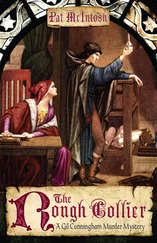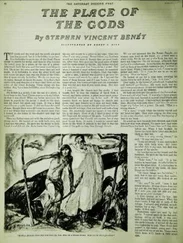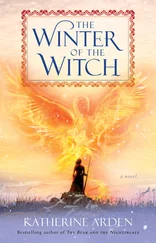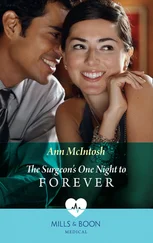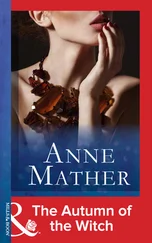This time as Mazare drove he didn’t enlighten me about where we were. We’d turned southwest and traveled to a busy street, that’s all I knew. He swung off the road onto a driveway and we slowed down. A sign announced the North Gate Cemetery, burial ground for Commonwealth soldiers of the 1917 campaign against the Ottoman Turks. Had Tomas taken a page out of Hal’s book and chosen a hiding place similar to the one in New York?
Rusted metal gates hung open. We drove through on a path intended only for walking. He turned the van around and parked then yanked out his phone to make another call. After hanging up he said, “We wait for Tomas now. He’ll come soon.”
A broad center aisle was flanked by tall, scruffy palms; around the perimeter, grasses grew as tall as a man. The aisle led to a mausoleum, a four-pillared stone canopy erected over a base, clearly intended for someone important in contrast to the simple crosses and eroded headstones of the rank-and-file graves.
“This is a British cemetery? So many graves, it must have been a terrible battle.”
Mazare shook his head. “Not all died from bullets and swords.” “What then?”
“The cholera.” He pointed toward the rows of white crosses.
“They got so sick they coughed their own guts up. So far away from home. Why did they even come?”
I had no answer for that.
Perhaps it was just the contrast between the quiet in the cemetery and the traffic noise in the rest of the city, but there was a stillness here that felt anything but peaceful. No birds chirped their evensong; no small animals scampered in the grass. We waited.
Near dusk, the sun limped lower in the sky. My attention was caught by a shadow out of keeping with the forms surrounding it. It seemed too tall and appeared to move toward us. It was as if a stone monument had suddenly come alive. Shim moved into view.
The white Humvee burst into the cemetery. On its tail, Ward’s sedan. Mazare yelled and dove for the floor. He pulled out a semi-automatic from underneath the seat. I lunged for the door handle. Mazare grabbed me and pulled me back.
Truly lethal sounds have a soft edge. I heard a pop off in the distance, followed by a crump. The shock wave of a blast blew me against the door. A second wave resonated and held me there. The metal window frame of our van glowed, the heat scorching my arm. I yanked it back. The white Humvee exploded into a cauldron of orange flame. Its doors burst open and Eris’s body tumbled out, a bloody hole in her ravaged torso, her hair on fire. A bloom of oily smoke gushed into the air.
Shim reached the sedan, flung open the door, and hauled Ward out, keeping his massive body between Ward and the locus of the attack. With the force of a pneumatic drill, a series of shots tore up the grass in front of him. One of the guards spilled out of the sedan, spraying gunfire toward the mausoleum. Mazare hit the handle on his side, kicked open the door, and got off a few rounds. The shots tore into the guard’s left side; his body bucked under the force of the bullets and he collapsed.
My own arteries felt close to bursting, my heart was pumping so hard. At the same time it seemed strange, as though I were watching all this happening to someone else.
A second missile hit the front of the sedan, throwing it into the air like a toy. It landed on its roof, shrapnel from the car whipping into us. Out of instinct I flung my hands up. Mazare jerked his body back when our windows shattered. I could smell burning rubber. I tried the door again; my hands shook so badly I could barely grasp the handle. I slammed against it and fell out. Mazare followed. I tried to get up but suddenly felt too weak to rise. Mazare looked at me for an instant, his face splintered with cuts, then ran.
Shim reversed course, trying to drag Ward behind the wrecked hulk of the sedan. More shots rang out. He shuddered and swayed but kept going, the bullets having about as much effect on him as if they’d been aimed at gravestones. But the sedan’s gas tank blew and Shim was too close. The explosion showered them with fire. Ward’s clothes burned; he screamed and flailed on the ground. Shim twisted and turned, caught in a violence of flame. He appeared to shrink and grow black, stone turning into cinder, and toppled to the ground.
I tried to stand up again. Another volley of shots hit the front of our van. A blinding pain ripped through my head. I became oddly aware of gravestones glowing with a white radiance as if they were embedded with internal lights. I remember forcing myself to breathe. Someone leaned over me, trying to say something. I could see a mouth moving but couldn’t hear the words, as if I’d been submerged under fifty feet of water. The person faded away. And then I was underwater, green fish coiling around my legs, blankets of emerald seaweed wrapping my arms, Laurel’s body rolling in the current, her skin silver like a mermaid’s, her brown hair fanning out, her limbs moving as if she were dancing in the stream. My last thought—surprise—that a river could spring up so suddenly in a graveyard.
Thirty-three

Two spears of pain drilled through my temples. I opened my eyes and saw only the gray, amorphous screen that is the landscape of the blind. I blinked and rubbed my eyes, trying to force my vision back. My sight cleared and I could tell the environment actually was gray: concrete block walls, a floor painted prison gray, no furniture, the only daylight coming from a small window near the ceiling.
I lay on a foam rubber mat wedged into a corner of the room. I could hear nothing and prayed that didn’t mean the explosion had destroyed my eardrums. A rough bandage applied to my forearm covered the burn from the hot metal of the van.
When I tried to get up I collapsed on legs so weak it felt as though my bones had been somehow extracted, leaving the flesh intact. I raised myself to my knees and crawled to the outline of a door on the opposite wall. There was no handle or lock so I struggled back, slumping once more onto the foam mat.
When the door did open, a beam of light hit me full in the face. I gave my head a shake and saw Tomas standing in the doorway.
“Well, John,” he said, “welcome back to the world.” It sounded as though he were speaking from far away, but I was relieved that my ears hadn’t been deafened in the firefight.
One of his men had to help me upstairs. It felt like I was climbing a small mountain of mud. On the second floor we went up another staircase to a little rooftop terrace with a stone statuette of a faun, a rust stain marking the path where the water would have tinkled out from his set of pan pipes. I slumped into a plastic chair.
Tomas handed me a glass of tea. “Drink this,” he said. “It will refresh you.”
Any resistance I might have summoned had been wiped out by the trauma of the blast. The cool menthol of the tea slipped agreeably down my throat. Over the wall I could see other rooftop terraces crowning modest buildings in shades of butterscotch, peach, and henna against the backdrop of an azure sky. Clumps of palms waved in the distance. I felt the sun on my face, soft in the cool breeze. I could have been sitting in a pension on the Côte d’Azur. I wanted to stay here forever.
Tomas had acquired a bit of a tan. He looked relaxed and settled, glad to be home.
I finished my tea and set the cup down. Tomas reached for a tray of dates and nuts, asking if I’d like something to eat. I shook my head. Just drinking the tea had produced little spurts of nausea. I didn’t want to push it.
“You’ll feel better in a while,” he said, “no serious damage done.” “Is it true about Laurel?”
Читать дальше





